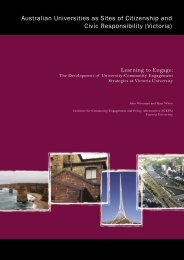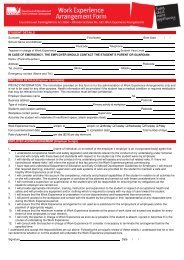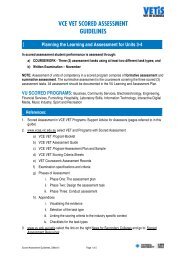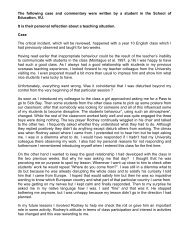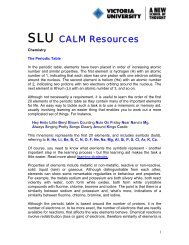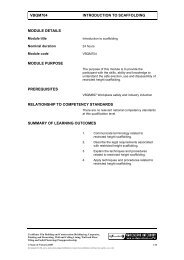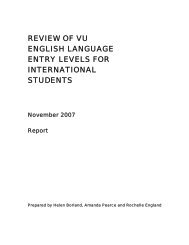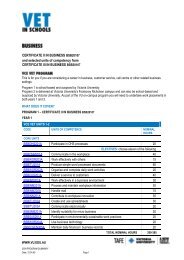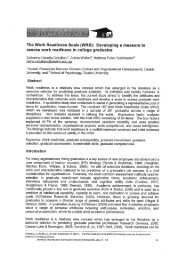Issue 6 2010 - TLS - Victoria University
Issue 6 2010 - TLS - Victoria University
Issue 6 2010 - TLS - Victoria University
Create successful ePaper yourself
Turn your PDF publications into a flip-book with our unique Google optimized e-Paper software.
Time with Agnes<br />
by Paul Bateman<br />
I visit my grandmother twice a month. Agnes lives in an aged care facility in Melbourne’s eastern suburbs,<br />
near a public swimming pool. So I visit her and then I swim.<br />
Her accommodation is better than people fear when they imagine their dying days in a home for the<br />
elderly. Her place might be a little dull but it is, by any standards, modern, bright and clean.<br />
Agnes is pretty much confined to her room. She visits the dining hall three times a day and shuffles around<br />
the perimeter of the property for exercise and a change of scenery—but these activities leave her tired.<br />
Agnes stays in her room because her body is stooped and her bones are dry and brittle. I call her ‘my old,<br />
old tree’ and she giggles with approval.<br />
Giggles, not laughs. Giggling is what children do—and Agnes, 96, is growing back to childhood, a process<br />
as strange and contradictory as it is real and constant.<br />
I have recently returned from America. I travelled across the country from sea to shining sea. Agnes has only<br />
one question: ‘America, is it big’<br />
‘Yes,’ I say. ‘It’s very big.’<br />
The answer delights her and occupies her tiny frame as swiftly and as surely as ingesting lemonade; she<br />
bubbles with excitement and giggles like a three-year old.<br />
This is not to say that her mind has gone or that her powers of concentration are diminished beyond reason.<br />
Sometimes she surprises me with the depth and subtlety of her insights and inquiries.<br />
But equally it’s very clear that her grasp of time and facts is rapidly deserting her. Our conversations are<br />
increasingly erratic and almost always repetitive. She will call me by my father’s name and ask, a dozen<br />
times over, if I have money for a taxi.<br />
I try to keep things simple and to find, in each of my visits, a single moment of true connection. We play<br />
a word game based around a eucalypt that stands outside her bedroom window: who can best describe the<br />
tree in a single adjective<br />
I say ‘melancholic’. She says ‘dignified’. Agnes wins. I say<br />
‘stoic’. She says ‘faithful’. Agnes wins again.<br />
One day, after heavy rain, the sun poured through a fold<br />
of clouds and splashed its rays like thick, bright paint on<br />
the branches of the tree. Agnes called that ‘luminous’.<br />
Her world grows ever smaller yet increasingly authentic. I<br />
can not say if what she sees outside her bedroom window<br />
is simply a reflection of her own internal world or whether,<br />
in fact, confined to her room, the world outside her<br />
window has imprinted itself upon her soul.<br />
I think Agnes is the eucalypt and the eucalypt is Agnes.<br />
There was a time, some years ago, when I would leave my<br />
grandmother’s room with feelings approximating guilt:<br />
that I am young and blessed with strength, vitality and<br />
health. Or I’d take upon myself, in misplaced empathy, the<br />
pain and incapacity I imagined to be hers.<br />
But not any more.<br />
My old, old tree is quite content, settled by her window. I<br />
visit the pool and swim my laps, and then I swim a dozen<br />
more.<br />
Paul Bateman is a Melbourne writer.<br />
Page 53



